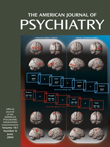On Chronic Fatigue Syndrome
Ms. A was a 50-year-old female health care practitioner with a history of well-controlled major depression, hypertension, asthma, and hyperlipidemia. She began to experience insidious and disabling fatigue, a sore throat, myalgias, subjectively nonrestorative sleep, cognitive problems, migratory joint pain, right-sided carotidynia, and severe postexertional malaise. Her symptoms were initially believed to be due to a mild infectious illness; however, her symptoms progressed unremittingly. Further questioning about her symptoms revealed an absence of episodic “sleep attacks,” cataplexy, hypnagogic or hypnopompic activity, sleep paralysis, lightheadedness, and loss of consciousness.Despite extensive medical workups by internal medicine primary and subspecialty care services, no organic basis for her symptoms could be discovered. Neuropsychological testing showed normal intelligence and some problems with working memory and learning new information. Polysomnography failed to document any abnormalities, including those that would have suggested narcolepsy. Two cranial magnetic resonance imaging studies had findings that were clinically insignificant. Functionally, Ms. A complained of social withdrawal and an inability to work because of her symptoms, especially cognitive dulling and fatigue. She adamantly denied feeling depressed or being unable to experience pleasure.Ms. A’s concurrent medication list included venlafaxine, bupropion, propranolol, fluticasone, and albuterol. Bupropion was discontinued because of its presumed ill effects on sleep. Judicious use of clonazepam at bedtime was unhelpful in restoring sleep, while switching her antihypertensive medication to ramipril did not reduce fatigue. A brief trial of low-dose amitriptyline provided only modest relief of carotidynia before being discontinued because of bothersome side effects. She refused to participate in subsequent antidepressant trials, including a monoamine oxidase inhibitor after venlafaxine washout, other augmenting strategies, and nonpharmacological interventions, believing that they would not be helpful in ameliorating a “physical” process. She did, however, consent to a trial of modafinil, 200 mg/day, after discussion of off-label use.Within 48 hours, Ms. A reported “dramatic” improvements in subjective alertness and a resolution of disabling fatigue. She began exercising daily without postexertional malaise and had resumed limited work duties at the 8-week follow-up. Close monitoring of her blood pressure and serum lipid levels showed no change. Clinical improvements were subsequently maintained at the 3-month follow-up with no limiting side effects.
References
Information & Authors
Information
Published In
History
Authors
Metrics & Citations
Metrics
Citations
Export Citations
If you have the appropriate software installed, you can download article citation data to the citation manager of your choice. Simply select your manager software from the list below and click Download.
For more information or tips please see 'Downloading to a citation manager' in the Help menu.
View Options
View options
PDF/EPUB
View PDF/EPUBGet Access
Login options
Already a subscriber? Access your subscription through your login credentials or your institution for full access to this article.
Personal login Institutional Login Open Athens loginNot a subscriber?
PsychiatryOnline subscription options offer access to the DSM-5-TR® library, books, journals, CME, and patient resources. This all-in-one virtual library provides psychiatrists and mental health professionals with key resources for diagnosis, treatment, research, and professional development.
Need more help? PsychiatryOnline Customer Service may be reached by emailing [email protected] or by calling 800-368-5777 (in the U.S.) or 703-907-7322 (outside the U.S.).

